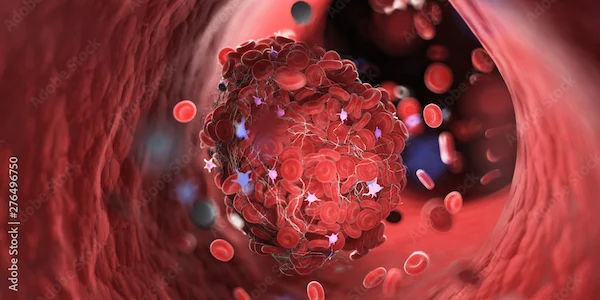Signs Of Vitamin A Deficiency
Know about the vitamin A deficiency, what it is, common signs and symptoms, risk factors, diagnosis, treatment options and lifestyle management.

Written by Dr. Md Yusuf Shareef
Reviewed by Dr. Rohinipriyanka Pondugula MBBS
Last updated on 13th Jan, 2026

Introduction
Have you been struggling with persistent dry skin, poor night vision, or a weakened immune system? While these might seem like unrelated issues, they could all be pointing toward a common nutritional gap: vitamin A deficiency. Often overlooked, vitamin A is a powerhouse nutrient essential for maintaining healthy vision, supporting your immune system, and ensuring proper cell growth. This article will guide you through the often-subtle signs of vitamin A deficiency, explain who is most at risk, and provide practical, actionable steps for diagnosis and treatment. Understanding these symptoms is the first step toward safeguarding your health and well-being.
What is Vitamin A and Why Do We Need It?
Vitamin A isn't a single compound but a group of fat-soluble nutrients crucial for overall health. It comes in two primary forms found in our diet. Preformed vitamin A (retinol and retinyl ester) is found in animal products like liver, fish, and dairy. Provitamin A carotenoids, like beta-carotene, are found in plant-based foods like carrots, sweet potatoes, and spinach, which our bodies convert into active vitamin A.
The functions of this vital nutrient are extensive. It is a critical component of rhodopsin, a protein in your eyes that allows you to see in low-light conditions, making it fundamental for preventing night blindness. Beyond vision, it supports cell growth and differentiation, ensuring your skin and the linings of your respiratory and intestinal tracts act as effective barriers against infection. It also plays a central role in the proper functioning of your immune system, helping to regulate immune responses and fight off illnesses.
Consult a General Practitioner for Personalised Advice
The Most Common Signs and Symptoms of Vitamin A Deficiency
Recognizing the symptoms early is key to preventing long-term complications. The signs often progress from mild to severe.
Vision Problems: The Early Warning Sign (Night Blindness)
The most classic and early sign of a vitamin A deficiency is night blindness (nyctalopia). Individuals find it increasingly difficult to see in dim light or while driving at night. As the deficiency worsens, it can lead to xerophthalmia, a condition where the eyes cannot produce tears, leading to extreme dryness, thickening of the corneas, and the appearance of foamy spots on the conjunctiva known as Bitot's spots. If left untreated, it can result in corneal ulceration and permanent blindness.
Skin and Hair Changes: Dryness and Keratinization
Vitamin A is vital for the creation and repair of skin cells. A deficiency can lead to xerosis (dry, scaly skin) and a condition called phrynoderma, characterized by hyperkeratotic (excess keratin) bumps on the skin, often on the shoulders, buttocks, and extremities. Your hair may also become dry and brittle due to improper keratin production.
Impaired Immune Function: Frequent Infections
Often called the "anti-inflammation vitamin," vitamin A is essential for the integrity of mucosal surfaces in the lungs, gut, and urinary tract our body's first line of defense. A deficiency compromises this barrier, making you more susceptible to infections like pneumonia, diarrhea, and measles. For children, this is particularly dangerous, as it significantly increases the risk of severe infectious diseases.
Other Potential Symptoms to Watch For
Other signs can include fatigue, fertility issues in both men and women, delayed growth in children, and poor wound healing due to its role in cell reproduction.
Who is Most at Risk? Understanding the Causes
The conditions which pose more risk include:
Dietary Insufficiencies
The most straightforward cause is not consuming enough foods rich in vitamin A. This is especially prevalent in regions with limited access to animal liver, dairy, eggs, and colorful fruits and vegetables.
Underlying Health Conditions
Certain conditions impair the absorption of fat-soluble vitamins. These include Crohn's disease, celiac disease, cystic fibrosis, chronic pancreatitis, and disorders affecting the liver (where vitamin A is stored) and bile duct (essential for its absorption).
Populations with Higher Vulnerability
- Infants and Young Children: They have high requirements for growth but often picky eating habits.
- Pregnant and Lactating Women: Their nutritional demands are increased to support the fetus and milk production.
- Individuals with Alcohol Use Disorder: Alcohol affects liver function and vitamin A metabolism.
How is Vitamin A Deficiency Diagnosed?
If you suspect you have a vitamin A deficiency, it's crucial to seek professional medical advice. Self-diagnosing and supplementing can be dangerous due to the risk of toxicity. A doctor will evaluate your symptoms, review your dietary history, and may order a blood test to measure the level of retinol in your blood. Apollo24|7 offers convenient home collection for tests like this, making the diagnostic process smoother. A clinical eye exam may also be conducted to check for signs of xerophthalmia.
Treatment and Prevention: Restoring Your Levels
The treatment and prevention ways include:
Dietary Changes: Top Food Sources of Vitamin A
The best way to prevent and address a mild deficiency is through diet. Preformed Vitamin A Sources: Beef liver, cod liver oil, eggs, fortified milk, cheese. Beta-Carotene Sources: Sweet potatoes, carrots, pumpkins, kale, spinach, cantaloupe, red peppers, mangoes.
Supplementation: Guidance and Precautions
For more significant deficiencies, a doctor may prescribe vitamin A deficiency treatment through supplements. It is critical to follow medical guidance, as excessive vitamin A intake (hypervitaminosis A) can be toxic, causing dizziness, nausea, headaches, and even liver damage.
Potential Complications of Long-Term Deficiency
Ignoring a chronic deficiency can lead to severe health issues. The most devastating is permanent blindness from
corneal scarring. It also significantly increases childhood mortality from common infections like measles and diarrhea. Chronic deficiency can also lead to throat and chest infections, and in men, it can cause infertility.
Conclusion
Vitamin A deficiency is a serious but preventable condition. By recognizing the early signs of vitamin A deficiency such as vision changes, persistent dry skin, and a weakened immune system you can take proactive steps toward better health. Addressing this gap through a diet rich in colorful fruits, vegetables, and animal sources, or with professional medical guidance, can restore balance and protect you from long-term complications. If your condition does not improve after trying these dietary methods, consult a doctor online with Apollo24|7 for further evaluation and a personalized treatment plan.
Consult a General Practitioner for Personalised Advice
Consult a General Practitioner for Personalised Advice

Dr. Sanjukta Das
General Physician
9 Years • MBBS
Kolkata
MCR SUPER SPECIALITY POLY CLINIC & PATHOLOGY, Kolkata

Dr. Debdatta Pati
Psychiatrist
18 Years • MBBS, DPM, MD (PSYCHIATRY)
Kolkata
MCR SUPER SPECIALITY POLY CLINIC & PATHOLOGY, Kolkata

Dr Aswathy D C
General Practitioner
6 Years • MBBS
Bangalore
Apollo Clinic Bellandur, Bangalore

Dr. Uddalak Chakraborty
Neurologist
8 Years • MBBS, MD(GENL.MED.),DM(NEUROLOGY)
Kolkata
MCR SUPER SPECIALITY POLY CLINIC & PATHOLOGY, Kolkata

Dr. Imtiyaz Khan
General Practitioner
6 Years • MD (Physician), Fellowship in Critical Care,AFIH
Bengaluru
Apollo Clinic, Sarjapur Road, Bengaluru
Consult a General Practitioner for Personalised Advice

Dr. Sanjukta Das
General Physician
9 Years • MBBS
Kolkata
MCR SUPER SPECIALITY POLY CLINIC & PATHOLOGY, Kolkata

Dr. Debdatta Pati
Psychiatrist
18 Years • MBBS, DPM, MD (PSYCHIATRY)
Kolkata
MCR SUPER SPECIALITY POLY CLINIC & PATHOLOGY, Kolkata

Dr Aswathy D C
General Practitioner
6 Years • MBBS
Bangalore
Apollo Clinic Bellandur, Bangalore

Dr. Uddalak Chakraborty
Neurologist
8 Years • MBBS, MD(GENL.MED.),DM(NEUROLOGY)
Kolkata
MCR SUPER SPECIALITY POLY CLINIC & PATHOLOGY, Kolkata

Dr. Imtiyaz Khan
General Practitioner
6 Years • MD (Physician), Fellowship in Critical Care,AFIH
Bengaluru
Apollo Clinic, Sarjapur Road, Bengaluru
More articles from General Medical Consultation
Frequently Asked Questions
1. Can vitamin A deficiency cause permanent damage?
Yes, if left untreated, a severe deficiency can lead to permanent corneal scarring and blindness. It can also cause chronic health issues due to a perpetually compromised immune system.
2. How long does it take to correct a vitamin A deficiency?
For symptoms like night blindness, improvement can be seen within a few days to weeks of starting treatment. For skin symptoms, it may take several weeks or months to see significant improvement. The timeline depends on the severity and the treatment method (diet vs. supplementation).
3. Are there any risks to taking too much vitamin A?
Absolutely. Vitamin A is fat-soluble and stored in the liver. Excessive intake (hypervitaminosis A) can lead to toxicity, causing symptoms like dizziness, nausea, headaches, joint pain, and in severe cases, liver damage and birth defects. Always consult a doctor before starting supplements.
4. I'm a vegetarian. How can I avoid vitamin A deficiency?
Focus on consuming plenty of beta-carotene-rich foods like sweet potatoes, carrots, pumpkins, dark leafy greens (spinach, kale), and fruits like mangoes and cantaloupe. Your body converts beta-carotene into vitamin A efficiently.
5. Is a blood test necessary to diagnose a deficiency?
While a clinical evaluation of symptoms (especially eye signs) is telling, a blood test to measure serum retinol levels is the definitive way to diagnose a vitamin A deficiency and determine its severity.




